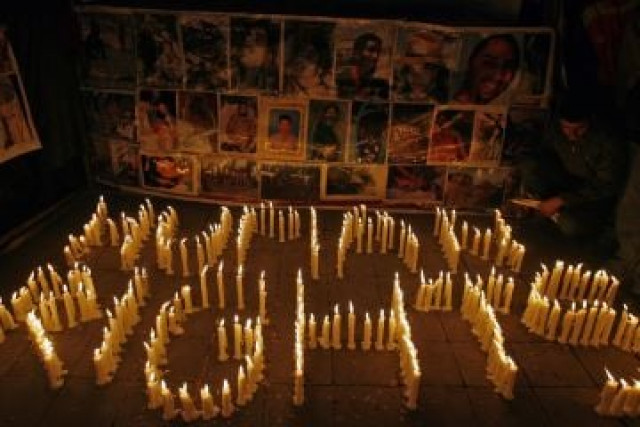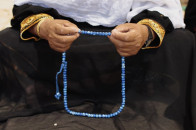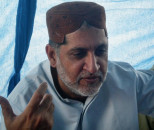Human rights in 2012: As citizens take law into their own hands, rights lose out
Rights violations kept Pakistan in the company of marginally functional states.

Rights violations kept Pakistan in the company of marginally functional states. PHOTO: REUTERS/FILE
The 2012 human rights situation in Pakistan can be assessed in three different ways. One approach is to tabulate the incidents of violations that have been reported.
A second view can be obtained from the international assessments of the rights situation in Pakistan. A third perspective can be drawn from evidence indicating whether our government has made progress in addressing the critical rights issues in our country.
The world focuses a lot of attention on the human rights violations in Pakistan. Everyone is aware of the shooting of Malala Yousafzai and the false blasphemy case against Rimsha Masih. In what other country are polio campaign workers murdered or children burned by acid thrown by their parents? Violence against women was enumerated in over 10,000 reported cases of rape, honour killing, domestic brutalities and acid attacks. Random bomb blasts and foreign drone attacks continued to result in numerous civilian casualties. Most violations against minorities go unreported or unresolved. Forced conversions, damage to places of worship and disputed cases of blasphemy are the source of daily fear.
The number of these crimes and their heinous nature resulted in Pakistan ranking among the bottom ten out of 197 countries according to Maplecroft’s Human Rights Risk Analysis. This puts us in the company of dictatorships like Burma, and marginally functional countries like Afghanistan and South Sudan. Newsweek analysed multiple rights aspects to determine the 10 best and 10 worst countries in the world for women. Again, Pakistan ranked among the 10 worst. The 2012 Gender Gap Report of World Economic Forum (WEF) placed Pakistan as 134 out of 135 countries, with only Yemen below us. The WEF assessment looks at indicators of economic participation, health, education and political participation.
In many of the other countries at the bottom of these lists it is the government that is the main perpetrator of human rights violations. In Pakistan, the situation is much more complex with the main rights violators being citizens.Our law enforcing agencies are sometimes a party to these violations, but more often their role is in failing to either prevent or prosecute. The delays in the justice process and low conviction rates continue to give violators the impression that they have nothing to fear. While these global ratings do not give a complete picture of our situation, they are stark enough to jolt anyone who still believes we don’t have a problem.
The pace of human rights legislation slowed considerably in 2012. Early in the year, the parliament finally approved the revised law on the National Commission on the Status of Women. Then it passed a law for the National Human Rights Commission. Other critical legislation, however, stayed pending. The comprehensive bill on acid attacks remained tied up in the human rights ministry for eleven months before it was finally tabled as a private member bill in December. A Child’s Rights Commission seemingly had support of all political parties, yet never passed. Opposition from several religious parties again was enough to push the Domestic Violence bill off the agenda. The bills on Hindu and Christian marriage and divorce remain somewhere in the human rights ministry. Nevertheless, in December, the president did sign a law advancing the cause of free education and another bill on due process of law for every citizen was passed by the National Assembly and awaits only Senate approval.
The fractured power dynamics in our national politics means that the will to counter human rights violations remains weak. Human rights legislation continues to be a minefield where those with the power to change also fear political and physical retaliation. We can see a change in this scenario in 2013 and onwards only if the parliament, government, judiciary, media and citizens unite to root out this problem.
The author is a human rights activist, currently doing research at the National Endowment for Democracy in Washington DC.
Published in The Express Tribune, January 1st, 2013.



















COMMENTS
Comments are moderated and generally will be posted if they are on-topic and not abusive.
For more information, please see our Comments FAQ